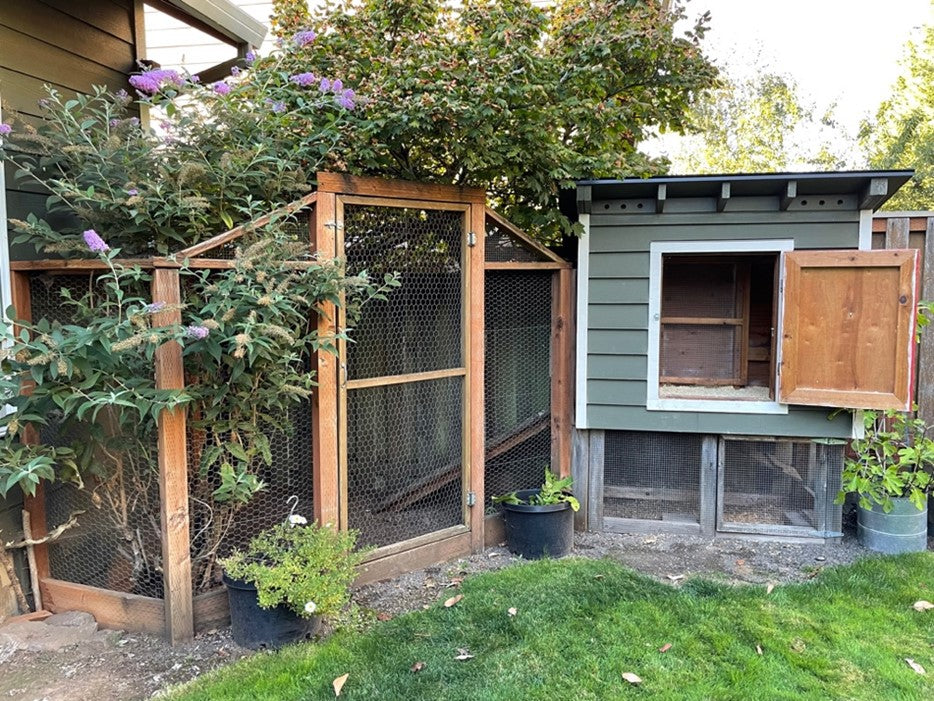How To Best Support Your Hen’s Egg Production
Maybe you treat your backyard chickens as pets and you are not using them to produce and sell eggs, but it is still nice to have fresh eggs ready for you each morning. There are many reasons why your hens may not be laying eggs including age, environment, nutrition, and more. In this article, we will discuss how you can help support your hens in frequently laying quality eggs that will help you keep making your mouth-watering morning omelets.
Light
For humans, sunlight affects our mood, and we even plan our schedules around sunny and rainy days. Similarly, hens laying eggs is linked to daylight and as the days get shorter in the winter so does the daylight. You can use a low-watt light bulb in the coop to give your bird more light to prolong their egg-laying throughout the day.
Water
Water is the single most important nutrient your chicken needs for quality egg production. Chickens are very particular about water and will not eat their food if they do not have something to drink. If you do not have fresh, clean water for your hen every day then this will decrease their egg production, and they will not eat as much which could lead to them getting sick.
Nutrients
Especially in the wintertime, a laying hen needs a lot of nutrition. They will exert more energy to keep themselves warm in the winter and less energy will go towards regularly laying eggs. By feeding your chicken nutrient-dense food, you will keep them happy and healthy and increase the chances of quality egg production.
Some of the important nutrients your hen needs:
- Calcium – calcium is vitally important in producing eggshells and hens need 4g of calcium a day, 2g of which go to the eggshell
- Protein – hens that are laying eggs need about 16-20% protein in their diet, egg production slows during molting season and protein helps with feather growth
- Omega-3 – hens that are fed omega-3 rich diets produce more enriched omega-3 eggs
- Magnesium – magnesium helps with calcium storage and bone development for strong and healthy chickens
A great source of nutrition for your hens is Supreme Grubs Black Soldier Fly Larvae. It is packed with micronutrients, calcium, phosphorus, and protein. Plus, it is environmentally friendly!
Illness
There are many diseases that could affect your birds and their laying ability. The common parasites that your bird could have are mites, fleas, and ticks. Make sure to check your birds frequently as some of these bugs can blend into your bird’s feathers. Feeding them nutrient-rich food (including the nutrients listed above) will keep your hens healthy and strong.
End of laying cycle
Chickens go through cycles of laying eggs that last about 10-12 months and they will typically lay an egg a day. If your hen is at the end of this cycle, then it is best to simply give her a break while she goes through a season of molting.
Roost
Hens naturally roost or perch at night to sleep. Roosts also keep your hens healthy because they will not constantly be on the ground of the coop where parasites and bacteria live. Chickens also need a separate safe place from their nesting box. Roosts make them feel more comfortable and will help with egg production.
Nesting box
Hens need a private and comfortable place to lay eggs with plenty of room. Make sure to line the nesting box with material that is easy to clean up like newspaper or straw. Clean it daily and collect the eggs regularly so that your hens will want to lay in it.
If you have a lot of backyard chickens that are currently laying eggs, then you may want 1-2 additional nesting boxes since they may want to be in it at the same time. More specifically, you will want to have one nesting box for every four hens. This will also encourage your hen to lay in the nesting box instead of from the roost, where the egg could crack when it falls.
If your hen has a habit of laying outside of her nesting box, then you can find some helpful tips here to help break this habit.
Conclusion
Overall, your backyard chickens are resilient and will adapt to their environment as long as they are cared for, clean, and well-fed, like any other pet. Sometimes hens just go through tougher seasons of egg-laying, even if you are doing everything you can to help them. Be patient and your hen should be back to her regularly scheduled laying soon.

